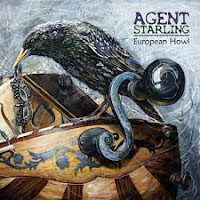Buchan (1875-1940) had a remarkable life as a novelist, historian
and diplomat who ended up as Governor General of Canada. His literary speciality
was writing what he called ‘shockers’, by which he meant an adventure story that
combined personal and political dramas, where the events were pretty implausible
but the reader is just able to believe in them. If you can disregard the casual,
unselfconscious racism and misogyny that was characteristic of early 21st
century writing Buchan’s adventure stories are still great fun. Part of the fun
for me is his use of curious contemporary words and phrases which have since become
anachronisms - but are surely worth reviving.
For example, in ‘Mr Standfast’ there’s the use of the phrase
“a different pair of shoes” where, nowadays, we’d be more likely to refer (with
no greater logic) to “a different kettle of fish”: “Letchford was a
different pair of shoes. He was some kind of a man, to begin with, and had an
excellent brain and the worst manners conceivable...”
And do you know what it is to feel ‘hipped’? In ‘The Power-House’
the protagonist Leithen admits: “I had had a bad reaction from the
excitements of the summer, and in these days I was feeling pretty well hipped
and overdone...” In US English ‘feeling hipped’ seems to mean being excessively
interested or preoccupied with something, (which could the case here,) but
there is an old-fashioned use in British English of ‘hipped’ meaning depressed
or melancholy. This seems to fit better with the feeling of being “pretty well hipped
and overdone.”
Apart from these linguistic curiosities, Buchan could make
some serious and prescient observations through the vehicle of his ‘shockers’. In
‘The Power-House’, Leithen meets Lumley - a man who inhabits a world “without
the ring of civilisation”, a man of “pure intelligence … stripped of
every shred of humanity”. In a chilling exchange Lumley says:
“Did you ever reflect, Mr. Leithen, how precarious is the
tenure of the civilisation we boast about?"
"I should have thought it fairly substantial,"
I said, "and the foundations grow daily firmer."
He laughed. "That is the lawyer's view, but believe me you are wrong. Reflect, and you will find that the foundations are sand. You think that a wall as solid as the earth separates civilisation from barbarism. I tell you the division is a thread, a sheet of glass. A touch here, a push there, and you bring back the reign of Saturn..."
We have only to think of President Trump’s supporters
storming Congress in January 2021 or Putin’s forces directly targeting a
children's hospital and a maternity ward in Mariupol in March 2022 to see how thin
is the line between civilisation and barbarism.
‘The Power-House’ was published in 1916 but what Lumley
tells Leithen about our politicians could have been inspired by the pandemic’s
PPE scandal or the financial instability caused by Liz Truss’s brief tenure as
Prime Minister: “Take the business of Government. When all is said, we are
ruled by the amateurs and the second-rate. The methods of our departments would
bring any private firm to bankruptcy. The methods of Parliament—pardon me—would
disgrace any board of directors...”
It wasn’t just George Orwell who predicted the state in
which we would find ourselves.




























